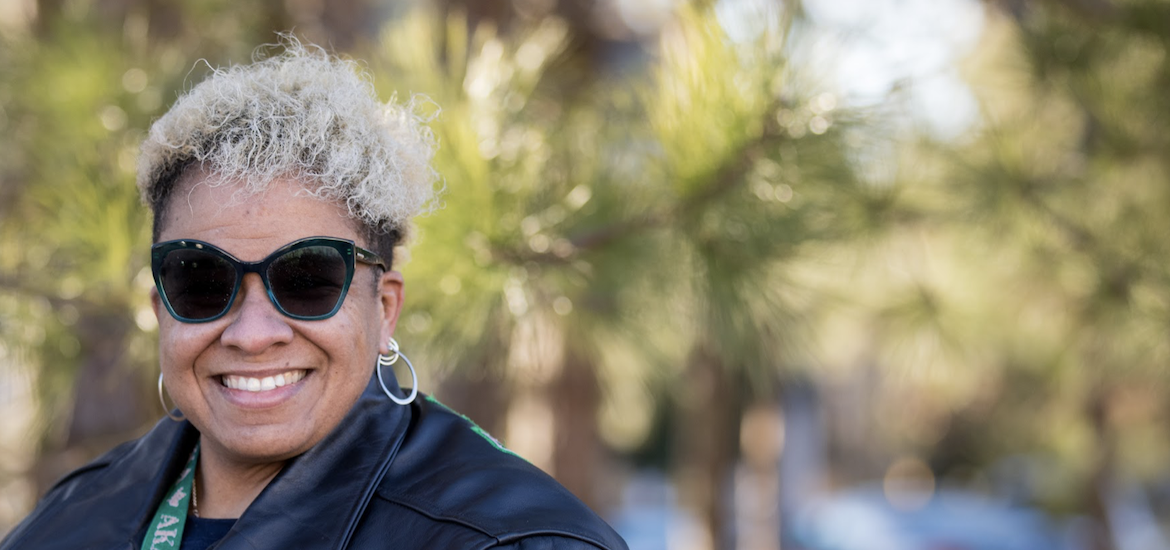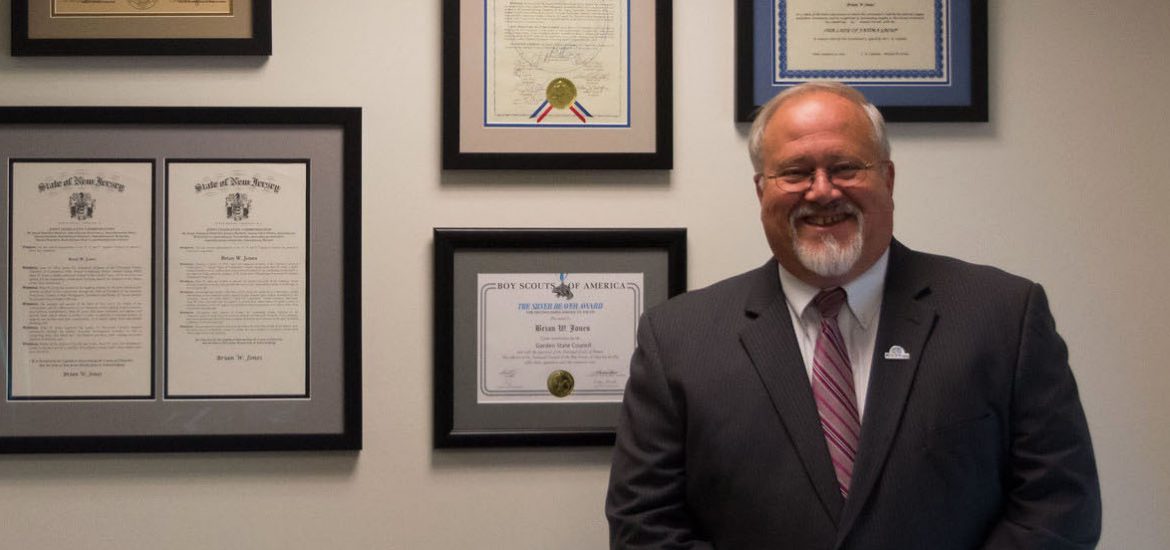Leo Kirschner is a champion of radio and sound. On air, he serves as assistant manager of the award-winning Rowan Radio station. On campus, he teaches for the department of Radio/TV/Film. He incorporated sound theory into a capstone project for his master’s degree in writing through Rowan Global. Read on to learn more about Leo’s research and graduate school journey.
Write the book that you want to read. A book to help others like you.
That was the goal of Leo Kirshner as he set out to complete his capstone project to earn his M.A. in Writing, but that was easier said than done.
A lover of all things fantasy, the goal would have been easier to complete if books like “Lord of the Rings” or “Harry Potter” were available to choose. Though, as much as we love to dream that schools like Hogwarts or places like Middle Earth exist, they are only works of fiction. For Leo’s assignment, he needed to choose a work of nonfiction that aligned with his research interests of radio broadcasting as well as his mission statement: Enlighten, Engage and Entertain.
Long before he was given this daunting task (and before Henry Rowan made his generous donation), Leo Kirshner was another student at Glassboro State College wondering what his next steps in life would be. While working to receive his undergraduate degree, Leo developed an interest in Radio and Television Broadcasting that he would pursue as a career after graduating.
“I was working professionally in commercial broadcasting,” he shares. “I was writing and creating content, focusing on journalism and covering local stories for the news or for radio. I also worked as an advertising copywriter for car commercials, restaurants, and other stuff along those lines. Along with that, I did voiceover work for different commercials as well as producing.”
He continued down this career path for the next 20 years before an opportunity to work at his alma mater would arise.
“My professor, Frank Hogan, who ran WGLS, was retiring, and they were bringing in a new team and wanted to know if I was interested in helping the department. I really wanted to give back to the community that helped me find success in my career.”

Leo would give back to the Rowan community by helping to run the Rowan Radio station and, though he enjoyed it, wanted to further lend a helping hand by diving into the world of academia. Since the school didn’t offer a master’s program in his initial career path, Leo decided to apply for the M.A. in Writing program through Rowan Global, something that greatly interested him. He was accepted based in large part on his portfolio filled with radio advertising, professional writing and creative writing that he writes on the side.
“I started the program in the fall of 2016 and took it one semester at a time,” he says. “It’s like all other programs. You have your prerequisites, your core classes, your seminars and your electives. It was all in person prior to COVID. They were the double session classes, usually from 6:30 until 9:15. There were two semesters where I taught my broadcasting class from 3:30 to 6:15 and the grad program was the same day starting at 6:30. I was working full time, 40 hours a week in my job plus teaching, plus being a family man.”
Managing it all wasn’t a simple task. During this time period, Leo experienced a health scare that made him step away from the program for almost a year and tried to make up for it by taking two classes a semester, something he describes as “the hardest thing I ever did.”
In one semester between the two classes, Leo had completed 57 writing projects that he had done in the span of 16 weeks while simultaneously working 40 hours a week at Rowan, running the radio station and teaching his course on broadcasting. Not to mention, he still had a family to take care of and support.
“It probably would have been easier if I was younger or didn’t have as much responsibility, but I wanted to do the best just to see if I could do it, you know, and yeah, thankfully, I did.”

Despite all of this hardship, Leo’s greatest test would come in the form of the capstone project, the final project/thesis requirement for completion of the program. “It’s essentially the first or second draft of your proposed book that you’re going to eventually publish.”
For his capstone project, Leo would decide to write a nonfiction piece centered around the concept of acousmatics in the style of a textbook mixed with a memoir. Acousmatics can be defined as the influence that sounds have over people. It’s the podcast you listen to on your drive home or the music you play while you workout. How does it make you feel? What does it inspire you to think?
Acousmatics comes to us from the Greek philosopher Pythagoras (yes, that Pythagoras), known for his favorite high school math equation as well as teaching his students behind a partition so that he was not visible. His students only heard his voice. It is this method of teaching that was the basis for Leo’s work.
“You listen to the DJ,” Leo explains, “You listen to the commercial to my car, because it’s this worldly voice that makes you think it’s the voice of God, an otherworldly being trying to educate you, to inspire you. The goal of you being on the air is to engage, enlighten and entertain.”

Leo presented his project to his peers and professors at a week-long symposium held by the department. Students present their projects in a fashion similar to TED Talks with presentations lasting anywhere between 20-45 minutes. Due to the pandemic, Leo’s class was regulated to presenting their findings via Zoom, but the presentation wasn’t any less impactful.
According to Leo, it was actually, “More fun!”
As for the project itself, it still remains unfinished.
“The book is not done,” he shares. “I think I’m only halfway through it, I had my outline. But the project is going to be at least 30,000 words.”
As for who he hopes readers will be, the answer is obvious. It is those he hopes to enlighten, engage and entertain the most: his students.
“[Learning and research] doesn’t have to be you sitting with a 500-page textbook,” he says, “It’s just you taking in an experience and learning from it.”
And we couldn’t agree more! For any student hoping go follow the same path as Leo and pursue their MA with the Rowan family, he offers the following words of wisdom:
“What I would tell any prospective M.A. student is that getting a master’s degree is everything you’d expect and nothing you’d expect. Yes, it’s going to take hard work. Yes, it’s going to be stressful. Yes, it’s going to give you self-doubt. But it also will offer you unique opportunities and perhaps change the direction of your life.”
Like what you see?
Story By:
Bianca Gray, English graduate





























